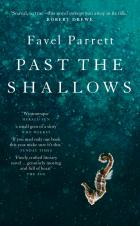
And if you finish it, you'll have a satisfying sense of having, at an individual level, disproved its thesis. Read this book: you'll learn lots of interesting stuff, lots of thought-provoking theories about the brain, about Google. One begins to wonder whether Carr is mourning the death of the author, the end of narratives and all that, and using neuroscience to vindicate his grieving.

While he points out that he was an early adopter who spent all his savings on a Macintosh SE, he seems more comfortable with digital devices that help him with analogue tasks (such as word processing) than entirely new digital forms, such as Facebook.

The internet has too many distracting flashing lights it's a bit noisy. Unsurprisingly, Carr comes across as someone who is uncomfortable with change. And as the internet remoulds and rewires the brain in its image, the old book-reading circuits fall out of use and wither. The latest neuroscience says that our grey matter is malleable and plastic. We stop reading novels, and before we know it, "the linear, literary mind" becomes "yesterday's mind".Ĭarr puts together an informative history of brain science to back up his argument. Soon all our brains want to do is click and flick. The web encourages us to click and flick. It may soon be yesterday’s mind.But, he says, it has altered the way our minds work. As supple as it is subtle, it’s been the imaginative mind of the Renaissance, the rational mind of the Enlightenment, the inventive mind of the Industrial Revolution, even the subversive mind of Modernism. The feelings are intoxicating-so much so that they can distract us from the Net’s deeper cognitive consequences.įor the last five centuries, ever since Gutenberg’s printing press made book reading a popular pursuit, the linear, literary mind has been at the center of art, science, and society. John Batelle, a onetime magazine editor and journalism professor who now runs an online advertising syndicate, has described the intellectual fission he experiences when skittered across Web pages: ‘When I am performing bricolage in real time over the course of hours, I am ‘feeling’ my brain light up, I ‘feeling like I’m getting smarter.’ Most of us have experienced similar sensations while online.

What we’re trading away in return for the riches of the Net-and only a curmudgeon would refuse to see the riches-is what Karp calls ‘our old linear thought process.’ Calm, focused, undistracted, the linear mind is being pushed aside by a new kind of mind that wants and needs to take in and dole out information in short, disjointed, often overlapping bursts-the faster, the better. “We seem to have arrived, as McLuhan said we would, at an important juncture in our intellectual and cultural history, a moment of transition between two very different modes of thinking.


 0 kommentar(er)
0 kommentar(er)
